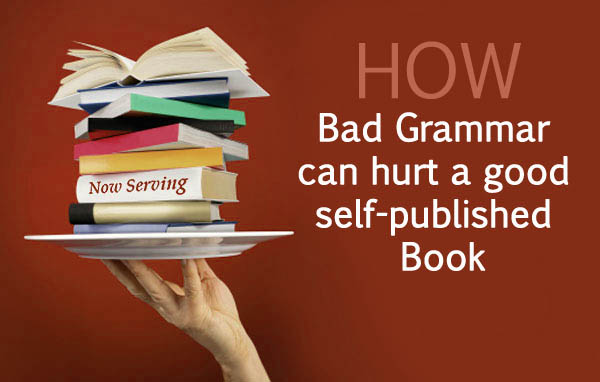We have spoken before in these pages about self-publishing as an increasingly viable option for people seeking to bring their work to the world. Apart from being faster than the traditional modes of publication, it also enables the writer to earn a higher margin from his work, though the burden of preparing and selling the work shifts entirely onto him or her.

The reason for bringing this up, of course, is to emphasise on the ‘preparation’ part. A manuscript that is sent to a traditional publisher is generally only selected if it meets certain basic criteria of readability. After that, a professional editor goes through the text and ensures that it is of a quality fit for publication, ironing out typographical and grammatical errors in the text. Now publishing standards vary from company to company, so some might invest more effort into this than others, but nonetheless these are some of the basic advantages that a traditionally-published book has over others.
When it comes to self-publishing however, the onus for ensuring a book is presentable rests with the author. And this is where, in the hurry and excitement of becoming a published author, many a writer makes the mistake of pushing their work into the world before it is ready.
Of the errors that can creep into a manuscript, the most difficult to spot is bad grammar. This is because spelling errors and typographical errors are easily found and a good spell-checker program will weed them out, but improper grammar is notoriously difficult to spot by someone who is not well-versed with the structure of the language.
‘Grammar’, by definition, is the body of rules that govern the use of the language. Like traffic rules, these are intended to better understanding and ensure a smooth flow of words. A motorist who does not follow traffic rules can still drive and reach his destination, unless caught by the police. Similarly, a writer who does not use proper grammar can often make himself understood, and he can not be fined by a ‘grammar police’ since no such legal entity exists.
But a quick glance at the moment of vehicular traffic in India (where rules are almost never followed) and the United States (where, due to close monitoring and high fines, they invariably are) shows us which system is better. Cars move faster there than here, they give better mileage and road accidents are fewer, compared to the number of cars on the road.
Similarly, when proper grammar is used, a reader understands better, does not have to strain his mind to make sense of the words and the writer’s intent is conveyed in a clearer manner. As for grammar police – well they may not have a legal sanction, but they do exist in one form – reviewers. If a book with bad grammar falls into the hands of a reviewer who knows a thing or two about the language, the reviewer will definitely tear it apart. Most reviewers are forgiving of the occasional spelling or typo error, attributing it to the publisher rather than the author, or even for a self-published book, willing to attribute it to carelessness. But bad grammar indicates a lack of knowledge of the fundamental of the language, and that is harder to forgive.
Keep in mind that an interesting plot, realistic characters and well-paced narration are all essential to making a good book, but a reader will not know if you have all these until he or she is past the halfway mark on your book. But bad grammar jumps out quickly, apparent by the first chapter itself. However good the rest of your book is – your story, your cover, your presentation, ultimately it is the words that imprint themselves on the reader’s mind, and if the way they are put forth is not in a form readers are accustomed to, you will lose the reader long before he finds out about the good things in your book.
So invest in a good editor, consult a good beta reader, find someone who will give you honest feedback on the way your write your sentences, on whether you follow the plain rules of grammar. Remember, when you self-publish, success and failure is entirely up to you. Do not let your work of art go out in the world without getting it properly ready.































